Philosophy for Children Through the Secondary Curriculum
A companion website to accompany this book is available online at:
http://education.lewischandley.continuumbooks.com
 Wherever you see this icon, please type in the URL above to receive your unique password for access to the books online resources.
Wherever you see this icon, please type in the URL above to receive your unique password for access to the books online resources.
If you experience any problems accessing the resources, please contact Continuum at:
Also available from Continuum
The If Machine, Peter Worley
Teaching Thinking, Robert Fisher
Think Again, John L. Taylor
Why Think?, Sara Stanley
Philosophy for Children Through the Secondary Curriculum
Edited by
Lizzy Lewis and Nick Chandley

Contents
Nick Chandley and Lizzy Lewis
Steve Williams
Steve Williams
James Nottingham
Steve Williams
Steve Williams
Rod Cunningham and John Smith
Lynda Dunlop
Patricia Hannam
Roger Sutcliffe
Doug Paterson
Dick Palfrey
Sara Liptai
Sara Liptai
Neil Phillipson and Gordon Poad
Paul Dearlove
Nick Chandley
Steve Williams
Contributors
Nick Chandley is a teacher and freelance trainer in Philosophy for Children, running courses in schools across the country and having been involved in many creative projects using P4C. He has consulted at local authority level in drama and was responsible for editing the most recent SAPERE Level 1 Handbook. He also currently coordinates the Open Futures online learning community for their askit strand.
Rod Cunningham has worked as a mathematics educator for over 30 years (first as a secondary teacher and then as an adviser). His present post involves working across 40 Welsh secondary schools on addressing disaffection among 11- to 13-year-old students. He has been facilitating P4C for 5 years and in that time has completed training with SAPERE to Level 3. At present he is working with a Year 6 group in a local primary school and is aiming to promote a transition model whereby Year 7 form teachers train with teachers from Years 5 and 6 in their feeder primaries. The proposed outcome is that P4C will become an integral part of the education of 5- to 18-year-olds in the cluster of schools.
Paul Dearlove is the owner of Step Up 2 Ltd, a small training company based in the Northeast, that supports the development of thinking, questioning and self-belief in teams and individuals. Paul has been a Merchant Navy Officer, Industrial Training Officer, Teacher, Principal of an Outdoor School in Denmark and latterly a Teaching and Learning Consultant. His Out-SMART programme marries thinking, appreciation and dialogue with an active approach to cooperative learning.
Lynda Dunlop is an experienced teacher of science and theory of knowledge. She is currently working as a researcher and completing a Ph.D. in science education at the University of Ulster, United Kingdom.
Patricia Hannam is Hampshire County Inspector/Adviser for RE/History as well as a SAPERE Levels 1, 2 and 3 trainer. She has extensive international experience with philosophical enquiry; in particular developing strong links with the Mexican Federation for Philosophy for Children over the past 10 years. She has facilitated a programme of Advanced P4C Seminars, first in Cumbria and now in Winchester, United Kingdom. Her doctoral research is in the field of enquiry in religious education and she has published various chapters and articles on this theme. Philosophy with Teenagers: Nurturing a Moral Imagination for the 21st Century was published by Continuum in 2009.
Lizzy Lewis began working for SAPERE in 2003 and now works part-time as Development Manager. In this role she has oversight of the running of the charity which includes SAPERE courses, membership, events, website, data, newsletter, communication and staffing. After completing a philosophy degree Lizzy was inspired by Socrates for Six-Year-Olds, a BBC programme that featured Matthew Lipman, and joined SAPERE in the early 1990s. Lizzy was a primary school teacher for 12 years, during which time she practised Philosophy for Children (P4C) mostly with infants. Lizzy was awarded a Best Practice Research Scholarship to evaluate her work in P4C in 2001, and co-authored a teachers resource, Thinking on the Edge (Thinking Activities to Develop Citizenship and Environmental Awareness) in 2003. For her Masters Degree in Education she focused on P4C and childrens emotional development. Lizzy was an Associate Tutor of Oxford Brookes University and trained teachers there in P4C between 2005 and 2009.
Sara Liptai BA PGCE Ph.D. had worked as a secondary school teacher, translator, linguist and musician in her native Hungary before emigrating to the United Kingdom in 1980. She was a BBC journalist and parent of young children when the lightning struck her in the form of Socrates for Six-Year-Olds, causing her to go back into education and to join SAPERE. She completed her Ph.D. on music as stimulus in P4C and has been arguing ever since for a special place for the arts in philosophical enquiry with anyone who is prepared to listen.
James Nottingham studied P4C as part of his university degree in the early 1990s before working in primary, middle and secondary schools across the United Kingdom. In 1999, he co-founded a multi-million pound, award-winning regeneration project (RAIS), using P4C as the catalyst for change. Today, James is a freelance trainer working with schools around the world. He is also co-founder of p4c.com, an online cooperative providing resources, advice and collaboration for creating dynamic P4C materials. www.jamesnottingham.co.uk
Dick Palfrey works part-time as an Independent Education Consultant in West Yorkshire, United Kingdom. He was School Improvement Officer for history, geography & environmental education, for Kirklees Learning Service, United Kingdom, from 200011. Previously, he had been a teacher of geography, geology, environmental studies, a secondary Head of Geography and Advanced Skills Teacher. Dicks interests include philosophy of place and time through local studies, plus wider questions of environmental sustainability and global identity.
Doug Paterson is an Advanced Skills Teacher and Head of History at a high school in the North East of England and winner of BT Teacher of the Year for the North East. Doug is particularly interested in enquiry-based learning and making history as interesting as possible. He is a SAPERE trainer and has delivered speeches and workshops at many conferences on wider aspects of teaching and learning.
Neil Phillipson is a Teaching and Learning Consultant with Stoke-on-Trent Local Authority, United Kingdom. He is interested in working with teachers to support the progressive development of learners independence through enquiry.
Gordon Poad is a creative learning practitioner, trainer and consultant. He is the director of Cap-a-Pie Associates, United Kingdom, who aim to design creative programmes that bring about positive changes in teaching, learning and curriculum design.
John Smith has taught for more than 30 years and he is a SAPERE registered P4C trainer. He has worked as a primary mathematics specialist for more than 15 years, first as a primary teacher and numeracy coordinator and then in his current role as a senior lecturer in the Manchester Metropolitan University Institute of Education, United Kingdom. John has been interested in childrens thinking as it is expressed in talk throughout his career and he is the author of
Next page

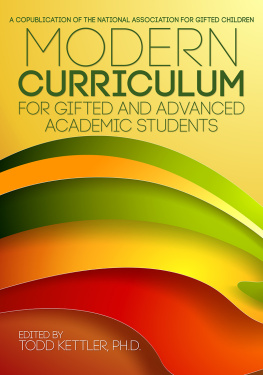
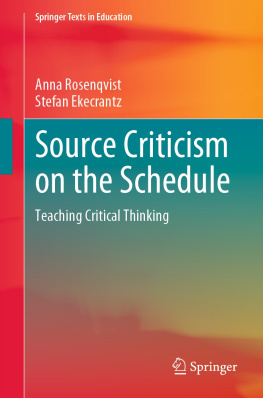
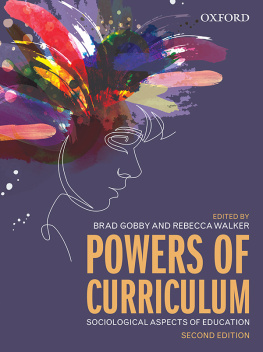
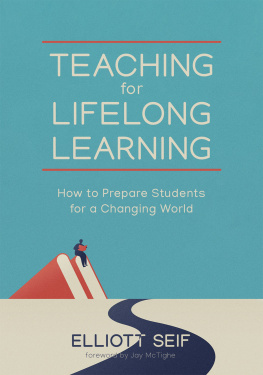
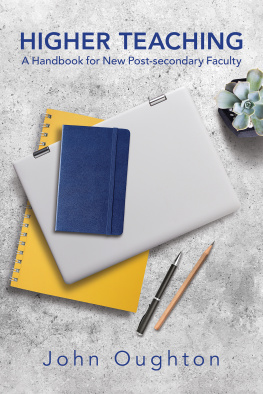
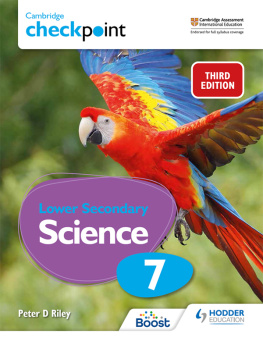
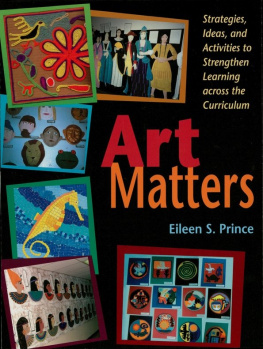
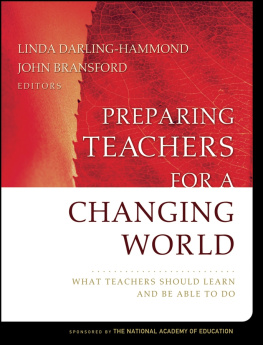
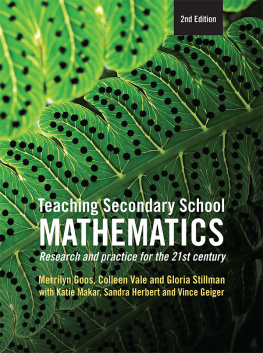
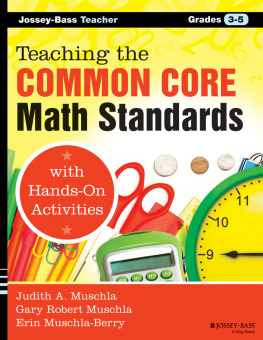
 Wherever you see this icon, please type in the URL above to receive your unique password for access to the books online resources.
Wherever you see this icon, please type in the URL above to receive your unique password for access to the books online resources.